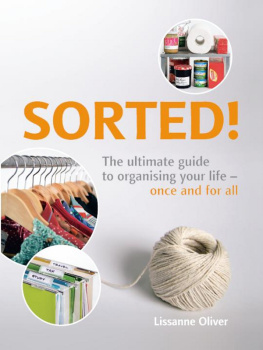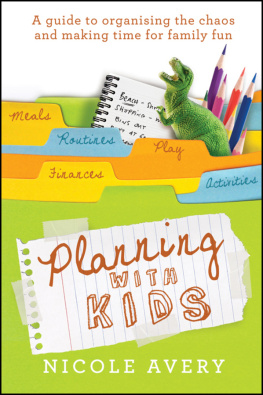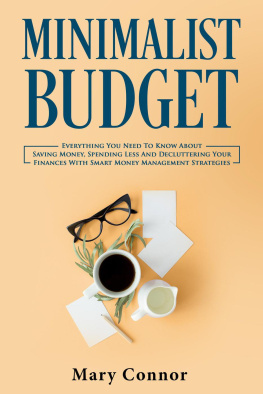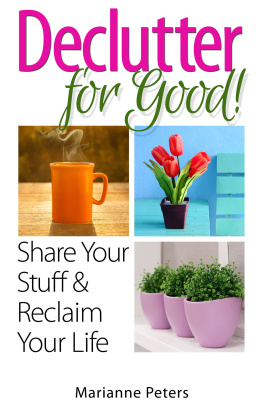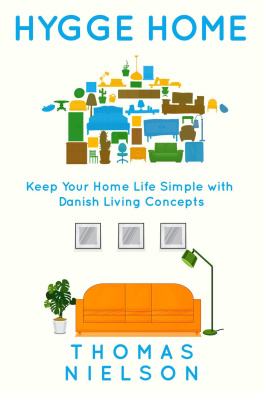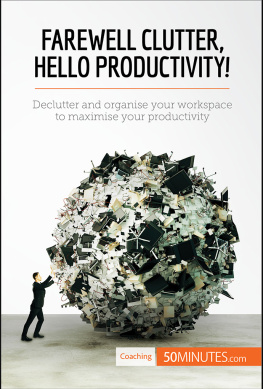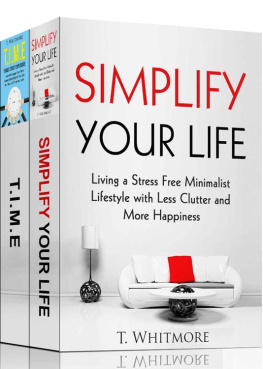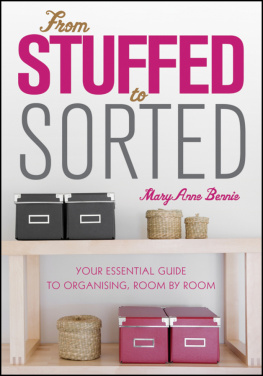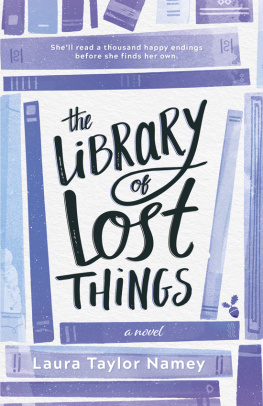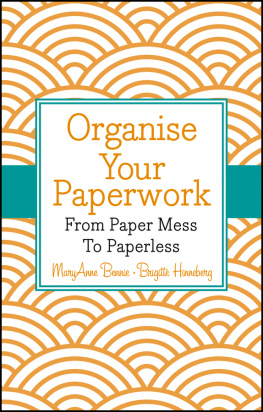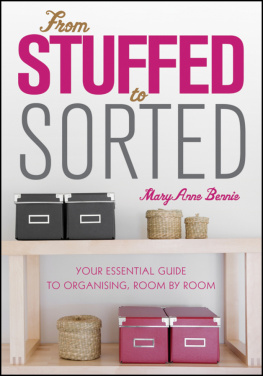SORTED!
The ultimate guide
to organising your life
once and for all
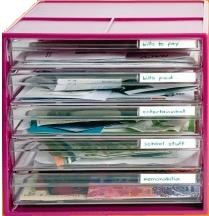
Lissanne Oliver

Published in 2007
by Hardie Grant Books
85 High Street
Prahran, Victoria 3181, Australia
www.hardiegrant.com.au
All rights reserved. No part of this publication may be reproduced, stored in a retrieval system or transmitted in any form by any means, electronic, mechanical, photocopying, recording or otherwise, without the prior written permission of the publishers and copyright holders.
The moral right of the author has been asserted.
Copyright text Lissanne Oliver 2007
Copyright photography Joe Ashton 2007
Cataloguing-in-Publication data:
Oliver, Lissanne.
Sorted!: the ultimate guide to organising your life once and for all.
ISBN 9 78 1 74066 520 9 (pbk.).
1. Simplicity. 2. Orderliness. I. Title.
Cover and text design by saso content & design pty ltd
Photography by Joe Ashton
Author photograph by Paul Wesley-Smith, a VISUAL life photography
Propping and styling by Lissanne Oliver
Printed and bound in China by SNP Leefung
Every effort has been made to incorporate up-to-date information and statistics. The publishers regret any errors and omissions and invite readers to contribute additional relevant information to Hardie Grant Books.
10 9 8 7 6 5 4
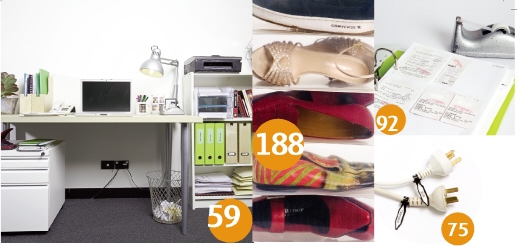
Contents
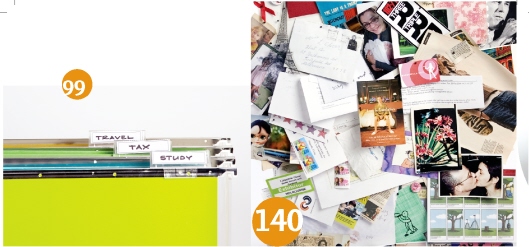



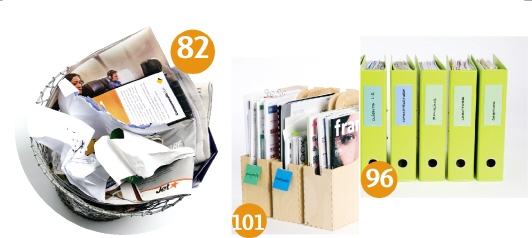

Clothes: drawers and shelves
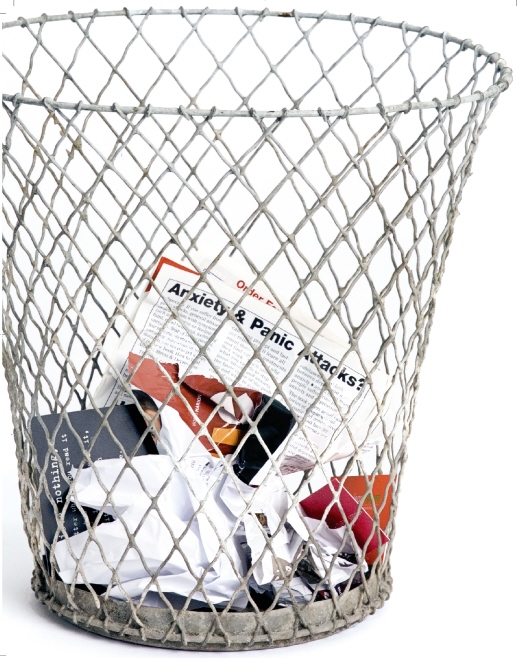
This book is for anyone whos ever:
been lost in a sea of paper
had to pay a late-payment fee
said its here somewhere
had trouble closing cupboard doors
stumbled around in the morning trying to find matching shoes
lost a cheque, precious photo or special trinket
felt they didnt know where to start
purchased something again because theyve lost the original
felt overwhelmed by the thought of organising their stuff
wanted simple solutions to everyday problems
wanted to organise their space without spending a fortune
felt frustrated that boxes and tubs dont fix the problem (without knowing why)
wanted to learn time- and money-saving ways to complete tasks.
No one teaches us how to be organised, yet its a fundamental life skill that is crucial to personal and professional success. We all know that a lack of organisation and efficiency is costly, stressful and time-consuming. Being organised is like having a well-serviced life: things arent lost; paperwork doesnt pile up; time isnt wasted trying to find things; money isnt squandered double-buying items or having to replace lost objects. Finding a place for everything and putting everything in its place also means having more time for the good stuff time with your partner or family, or time spent just relaxing. The benefits are far-reaching.
You might feel frustrated by your lack of organisation, and you probably find the thought of having to fix things completely overwhelming. The process becomes difficult because you dont know how to start or find it hard to make time. When attempts are abandoned, the problem is compounded and causes guilt.
In this book, I will teach you that anyone can become organised; its a skill that can be learnt. I will share what I have discovered through years of professional organising, consulting in homes and offices, and teaching in workshops around Australia. So turn over a new leaf and learn to live more efficiently and effectively. Get organised! Every small step contributes to a better quality of life.
This book has three parts:
Getting sorted
Truths and techniques
Recipes.
The recipes in the final section of the book are grouped into four main areas:
Work
Paper
On the go
Living.
In this book, I will help you to:
understand the fundamental principles of being organised
learn crucial organising skills
debunk some common organising myths
solve focus and time-management problems
identify the tools required to simplify your busy life and space
realistically project-manage organising tasks
declutter significant areas of your home, work space and life
reduce the volume
formulate a strategy
feel confident about getting things under control
actually have fun in the process.
Happy sorting!
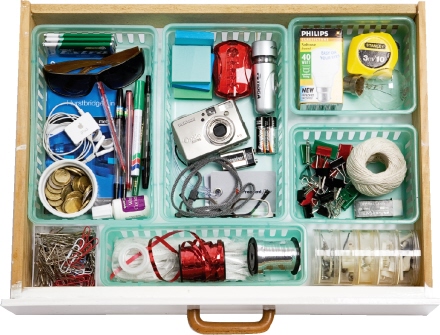
Getting
sorted
Congratulations on taking a positive step towards getting organised. This book is full of tips and information that will potentially change your life. I am passionate about empowering you so that you can take charge and do it yourself. This book is different in that it busts many myths and actually shows you, step by step, how to get organised. Learning is doing, so give it a go.
The benefits are life changing successful people are generally highly organised, or they have highly organised people supporting them. Dont underestimate the value of being on top of things. You will have loads more time (yes!), save buckets of money and avoid lots of frustration. Being efficient will give you more choices about how you spend your time. Being organised will allow you the freedom to explore your passions and dreams.
Whats important to you? What do you want your space to be like? Imagine how you would like to spend your time. Daydream. If you dont dream it, it cant be. Foster an approach that includes visualising a beautiful, welcoming, productive space, an efficient and less stressful life, less money wasted. You can roll it out; that is, you can implement your changes one by one, rather than all at once. Change takes time.
Its also important to know what motivates you we are good at different things for different reasons. Sir Bob Geldof put it this way: I do politics for my head, I do business for my pocket, I do music for my soul and I do family for my heart.
Artist Andy Warhol had the most creative approach to managing his stuff. The website of the Andy Warhol Museum describes his approach:
The highlight of the archives collection is Warhols Time Capsules. This serial work, spanning a thirty-year period from the early 1960s to the late 1980s, consists of 610 standard sized cardboard boxes, which Warhol, beginning in 1974, filled, sealed and sent to storage. Warhol used these boxes to manage the bewildering quantity of material that routinely passed through his life. Photographs, newspapers and magazines, fan letters, business and personal correspondence, artwork, source images for artwork, books, exhibition catalogues, and telephone messages, along with objects and countless examples of ephemera, such as announcements for poetry readings and dinner invitations, were placed on an almost daily basis into a box kept conveniently next to his desk.
Next page
